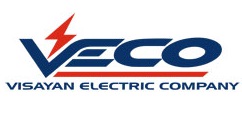Cebu power rates to rise by P1/kWh
 CEBU CITY—Metro Cebu residents are bracing for a staggering P1 per-kilowatt-hour increase in their power bills this month.
CEBU CITY—Metro Cebu residents are bracing for a staggering P1 per-kilowatt-hour increase in their power bills this month.
But the Visayan Electric Company (Veco), the country’s second largest power distribution firm, said it won’t be getting anything out of the higher rates.
It said it was merely passing on to consumers the 85-centavo per kilowatt hour increase in generation charge as a result of higher costs of power bought at the Wholesale Electricity Spot Market (WESM), which works like a stock market for electric producers and consumers.
The higher rates, Veco said, are also a result of higher costs being collected by the state-run National Power Corp. and Power Sector Assets and Liabilities Management Corp (Psalm), a government agency that runs power plants once owned by Napocor and are awaiting buyers.
“Veco is not profiting from it,” said Ethel Natera, Veco spokesperson and corporate communications manager. “The amount collected by generation companies is the same amount Veco will collect from its customers.”
She, however, explained that an average consumer who uses 200 kilowatt hours per month may have to pay P1 per kilowatt hour more.
338,870 customers
Veco services 338,870 homes, offices and factories in the cities of Cebu, Talisay, Mandaue and Naga, and the towns of San Fernando, Consolacion, Liloan and Minglanilla.
Cebu’s business leaders, however, appeared resigned to the power rate adjustment, saying consumers were virtually helpless against power rate increases.
Eric Ng Mendoza, head of the Mandaue Chamber of Commerce and Industry, said he would want to believe that the power rate increase has been reviewed carefully by the Energy Regulatory Commission.
“Any increase in power charge is an added burden to operating costs as it affects our capability to be competitive,” said Mendoza, president of furniture company, Mendco Development Corp.
Cebu Business Club president Gordon Allan “Dondi” Joseph said 85 centavos is a big increase and should prompt consumers to study how to conserve energy.
“The DOE (Department of Energy) is supposed to be studying demand programs but I am not certain if there is anything in place for the average consumer. We need to be careful of increasing costs and reducing competitiveness,” Joseph told the Inquirer.
Most vulnerable
Rey Calooy, head of the Filipino-Cebuano Business Club, said small- and medium-scale enterprises will be hurt most by the rate increase.
“Demand (for power) is expected due to a positive economic outlook in the country but I still think it is not time to (implement an) increase especially since fuel prices have gone down,” said Calooy.
Natera urged Cebuanos to manage their power consumption in the wake of the power rate adjustment.
She said consumers should use electricity more during nonpeak hours—10 a.m. to noon and 1 p.m. to 3 p.m.—in order to reduce demand.
Veco’s Natera said if demand was reduced during peak hours, the power distributor “doesn’t have to buy power that is more expensive.”
In a statement, Veco said high demand for power and low supply from coal-fired and hydroelectric power plants in the Luzon grid were the main reasons WESM doubled its electric selling cost from P4.8 per kilowatt hour in April to P9.9 per kilowatt hour in May.
The Luzon grid is interconnected to the Visayas power grid.
Increase in demand
Demand for power by Veco’s customers reached 405 megawatts in May compared to only 349 megawatts in April.
According to Veco, demand for power is usually high during the dry season.
“As demand is high, we have to buy more (power) and we have to buy from WESM because all power distribution firms are required to source at least 10 percent of their power needs from WESM,” said Natera.
Aside from higher costs of electricity from WESM, Veco said it has no choice but increase rates also because of higher generation charges being collected by Napocor and Psalm and which were approved by ERC.














